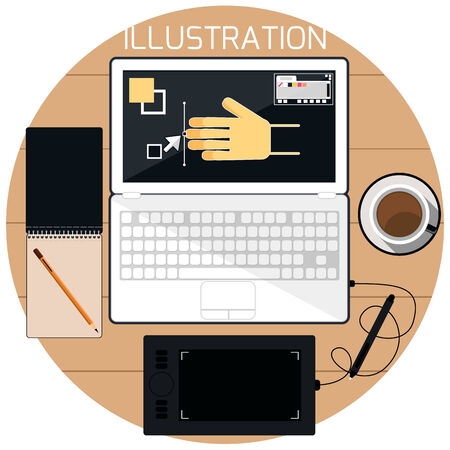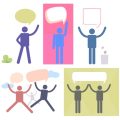Embracing Change: The New Normal in the American Workplace
As we look toward the future of work in the United States, one thing is crystal clear: change is not just coming, it’s already here. Rapid technological advancements are transforming industries at lightning speed. From artificial intelligence and automation to cloud computing and digital platforms, technology is reshaping how we work, communicate, and solve problems every day. At the same time, remote work has shifted from a temporary solution to a permanent fixture for many companies and employees. People are realizing they can be productive—and even thrive—outside of traditional office spaces, which has opened up new opportunities for flexibility and work-life balance. Shifting priorities are also driving this evolution. American workers today seek more than just a paycheck; they want purpose-driven roles, meaningful projects, and workplaces that prioritize well-being and growth. This dynamic environment requires us all to develop a mindset ready for continuous learning and adaptation. By embracing these changes with optimism and curiosity, we can navigate the uncertainty of the modern job market and discover new paths to personal and professional fulfillment.
2. Identifying Emerging Careers and Industries
As the American job market rapidly evolves, it’s more important than ever to keep an eye on emerging industries and career paths. The future of work is being shaped by advancements in technology, shifts in consumer demand, and a growing awareness of environmental sustainability. If you want to stay ahead, it’s crucial to explore fields that are not only growing but also becoming increasingly relevant. Here’s a quick overview of some sectors driving change:
| Industry | Key Roles | Why It Matters |
|---|---|---|
| Technology | Data Analysts, Cybersecurity Experts, AI Specialists | Tech continues to drive innovation in every sector, creating demand for digital skills. |
| Green Energy | Solar Technicians, Environmental Engineers, Sustainability Consultants | The push for clean energy is generating new jobs as America prioritizes sustainability. |
| Health Care | Nurse Practitioners, Telehealth Coordinators, Medical Coders | An aging population and digital health trends are expanding opportunities in health care. |
| Digital Services | E-commerce Managers, Digital Marketers, UX/UI Designers | Online business growth fuels demand for digital expertise and creative problem-solvers. |
These industries highlight where opportunity is moving. By focusing your career exploration on these high-growth areas, you’ll be better positioned to thrive as the American workplace transforms. Remember: investing in learning new skills or gaining certifications related to these sectors can pay off big time—not just financially, but also in terms of job satisfaction and long-term security.

3. Building Adaptable Skillsets for Career Resilience
In today’s American job market, adaptability is no longer just a nice-to-have—it’s essential for career resilience. As technology evolves and industries transform at lightning speed, the most successful professionals are those who invest in flexible skillsets that can withstand change and open doors to new opportunities.
Embracing Flexible Skills for an Unpredictable Future
Technical abilities will always matter, but it’s your transferable skills—like critical thinking, problem-solving, and digital literacy—that will keep you relevant. Whether you’re a software engineer, a healthcare worker, or an entrepreneur, actively seeking out learning experiences helps you pivot quickly when the landscape shifts. Don’t be afraid to sign up for workshops, take online courses, or volunteer for cross-functional projects that challenge your comfort zone.
The Power of Emotional Intelligence
Emotional intelligence (EQ) is a game-changer in the modern workplace. Employers value individuals who communicate effectively, empathize with others, and collaborate across diverse teams. High EQ enables you to manage stress, adapt to feedback, and navigate complex social dynamics—qualities that are especially prized in America’s multicultural work environments. Practice active listening, cultivate self-awareness, and seek mentorship to boost your emotional intelligence.
Cultivating a Growth Mindset
Perhaps the most important trait for thriving amid uncertainty is a growth mindset—the belief that your talents and abilities can be developed through effort and perseverance. Instead of fearing failure or resisting change, see every new challenge as a stepping stone to personal and professional growth. In the U.S., where innovation drives progress, those who embrace lifelong learning and remain curious are better positioned to seize emerging opportunities.
By focusing on flexible skills, emotional intelligence, and a growth mindset, you not only future-proof your career but also inspire those around you to rise above challenges. Remember: it’s not about having all the answers today—it’s about building the confidence and resilience to adapt as tomorrow unfolds.
4. Networking and Personal Branding in the Digital Age
In todays rapidly evolving American job market, networking and personal branding are more important than ever. The digital landscape has transformed the way professionals connect, share their stories, and unlock new career opportunities. Let’s dive into how you can master these essential skills to thrive in the future of work.
American Approaches to Networking
Networking in the U.S. goes beyond exchanging business cards at conferences. It’s about building genuine relationships, providing value, and staying engaged with your professional community. Americans often embrace an open, proactive approach to networking by reaching out for informational interviews, attending industry meetups, and participating in online communities. Remember: authentic connections matter more than the size of your contact list.
Building a Powerful Online Presence
Your online presence is your modern-day resume and calling card. Employers frequently look up candidates on social media before making hiring decisions. Therefore, curating your digital footprint is crucial. Here are some key elements for a strong online presence:
| Platform | Purpose | Best Practices |
|---|---|---|
| Professional networking & job search | Complete your profile, use a professional photo, showcase achievements, get recommendations | |
| Industry insights & thought leadership | Share relevant content, engage with leaders, join conversations using hashtags | |
| Personal Website | Portfolio & personal brand storytelling | Create a clean design, highlight major projects, include testimonials |
Leveraging LinkedIn for Career Opportunities
No platform embodies American professional networking culture quite like LinkedIn. It’s not just a digital resume—it’s a dynamic space to tell your story and connect with others who can support your journey. Here’s how you can make LinkedIn work for you:
- Optimize Your Profile: Use a headline that captures your strengths and aspirations. Fill out every section with clear, concise information.
- Engage Consistently: Share articles or insights related to your field, comment on posts from industry leaders, and participate in discussions.
- Expand Your Network: Connect with peers, alumni, recruiters, and professionals in roles you admire. Send personalized messages when reaching out.
- Showcase Your Impact: Use the “Featured” section to highlight projects or media that demonstrate your expertise.
- Ask for Recommendations: Endorsements and written recommendations from colleagues add credibility to your profile.
Cultivating Resilience Through Networking and Branding
The future of work belongs to those who invest in themselves and their networks. Don’t be afraid to reach out or put yourself out there—every connection is a potential opportunity. By mastering the art of networking and building an authentic personal brand online, you’ll position yourself as a resilient professional ready to navigate America’s changing career landscape.
5. Embracing Lifelong Learning
In today’s fast-paced American job market, one truth stands out: the only constant is change. Lifelong learning isn’t just a buzzword—it’s an essential mindset for anyone seeking to thrive amid shifting career landscapes. As industries evolve with new technologies and business models, skills that were in demand yesterday may be less relevant tomorrow. That’s why embracing continual learning and upskilling is key to staying ahead of the curve and opening doors to new opportunities.
The Growth Mindset Advantage
Successful professionals across the United States are adopting a growth mindset—a belief that abilities can be developed through dedication and hard work. This perspective empowers you to view each change in the job market as a chance to learn something new, rather than a threat to your career stability. Whether it’s enrolling in online courses, attending workshops, or pursuing certifications, investing in yourself will pay dividends for years to come.
Seizing New Job Opportunities
The American workplace values adaptability and initiative. By actively updating your skills, you signal to employers that you’re proactive and ready to take on emerging roles. Many companies now offer tuition reimbursement or professional development programs—take advantage of these resources! Networking at local events or joining industry groups can also expose you to fresh ideas and potential mentors who encourage your journey of lifelong learning.
Turning Change Into Opportunity
Remember, every disruption in the job market is also an invitation—to grow, reimagine your career path, and reach higher. By making continual learning part of your lifestyle, you’ll not only keep pace with changes but position yourself as a leader ready to seize whatever comes next. In America’s dynamic workforce, those who commit to lifelong learning will always find new ways to shine.
6. Overcoming Uncertainty with Positivity and Grit
As the American job market continues to evolve at lightning speed, uncertainty can feel overwhelming. But the truth is, our mindset is our greatest asset in times of change. Approaching the future of work with a proactive, optimistic attitude empowers us to face challenges head-on, rather than shrinking back in fear or hesitation.
Embrace Change as Opportunity
The future may be unpredictable, but it’s also full of possibilities. Instead of seeing disruptions as threats, try reframing them as invitations to grow and learn. Every shift in the workforce—whether it’s new technology, emerging industries, or changing expectations—offers a chance to expand your skills and discover untapped potential within yourself.
Cultivate Grit and Resilience
Grit isn’t just about working hard; it’s about staying committed when things get tough. When faced with setbacks or moments of doubt, remind yourself that perseverance is key. Build resilience by setting small, achievable goals and celebrating each step forward. Remember: success often belongs to those who refuse to give up.
Stay Proactive and Keep Learning
One of the most effective ways to conquer uncertainty is by taking charge of your personal and professional growth. Stay curious—seek out new knowledge through online courses, workshops, or mentorships. By continuously learning and adapting, you’ll not only keep pace with the evolving job market but also increase your confidence in navigating whatever comes next.
Your Mindset Shapes Your Journey
Ultimately, thriving in America’s rapidly changing workforce comes down to believing in yourself and your ability to adapt. Practice self-encouragement, surround yourself with positive influences, and focus on what you can control. With determination and an open mind, you’ll be ready to turn uncertainty into opportunity—no matter where your career exploration leads.


